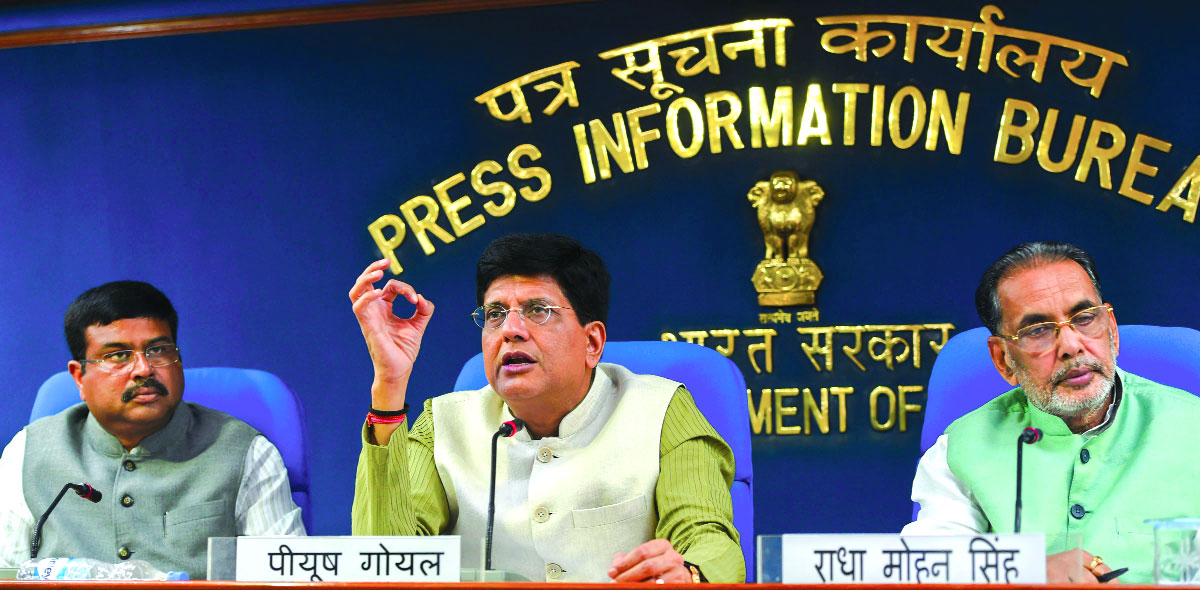Ethanol production to be incentivised; electrification of 100% rail tracks
With criticism mounting over sky-rocketing petroleum fuel prices, the NDA Government on Wednesday took a slew of measures to reduce burden on petrol and diesel by announcing to incentivise ethanol production in the country and approving 100 per cent electrification of rest of the 13,000 km of the broad gauge railway tracks at a cost of Rs 12,000 crore.
The Cabinet Committee on Economic Affairs (CCEA), chaired by Prime Minister Narendra Modi, approved the hike in ethanol price by 25 per cent. Now, the Oil Marketing Companies will buy ethanol from sugar mills at Rs 52 per litre from Rs 47.5 per litre. Ethanol has long been approved as an alternate fuel that can be blended with petrol to bring down its cost along with reducing carbon emissions.
The move is part of a bid to encourage sugar mills to divert production of sugar to ethanol. The Government also aims to cut down crude oil import by raising the blending of ethanol by 10 per cent.
To cut down usage of diesel, the CCEA also gave nod for electrification of more than 13,000 route kilometres of railway tracks at a cost of Rs 12,000 crore. Addressing the media, Railway Minister Piyush Goyal said the project is expected to finish by 2022, and it involves the conversion of existing diesel engines to electric. He said after the completion of this electrification project, the Railways will save over Rs 13,500 crore annually on fuel expenses.
In another significant decision to ensure that farmers growing 23 kharif crops get minimum support prices (MSP) announced by the Government ahead of the Assembly elections in five States and Lok Sabha elections next year, the CCEA approved a Rs 15,053 crore new procurement policy Pradhan Mantri Annadata Aay Sanrakshan Abhiyan (PM-AASHA) allowing States /Union Territories to choose a compensation scheme and rope in private agencies for procurement to ensure a profitable price to farmers even when market prices are lower.
The Government also decided to give additional Government guarantee of Rs 16,550 crore making it Rs 45,550 crore in total. The procurement of kharif crops is beginning from next few weeks.
The new scheme will be a mix of sub-schemes which will involve direct procurement from farmers (price support scheme or PSS), paying them for losses incurred when wholesale market prices are lower than announced MSPs (price deficiency payment scheme or PDPS), and Pilot of Private Procurement Stockist Scheme (PPSS) — to undertake procurement when prices of commodities fall below the MSP level. The performance of PM-AASHA will be critical in a year when several agriculturally important States like Madhya Pradesh, Rajasthan and Chhattisgarh, which grow pulses and oilseeds, will go to polls. Over the past two years, driven by higher production, wholesale prices of these crops fell sharply, often lower than MSP, forcing farmers to sell at a loss.


























